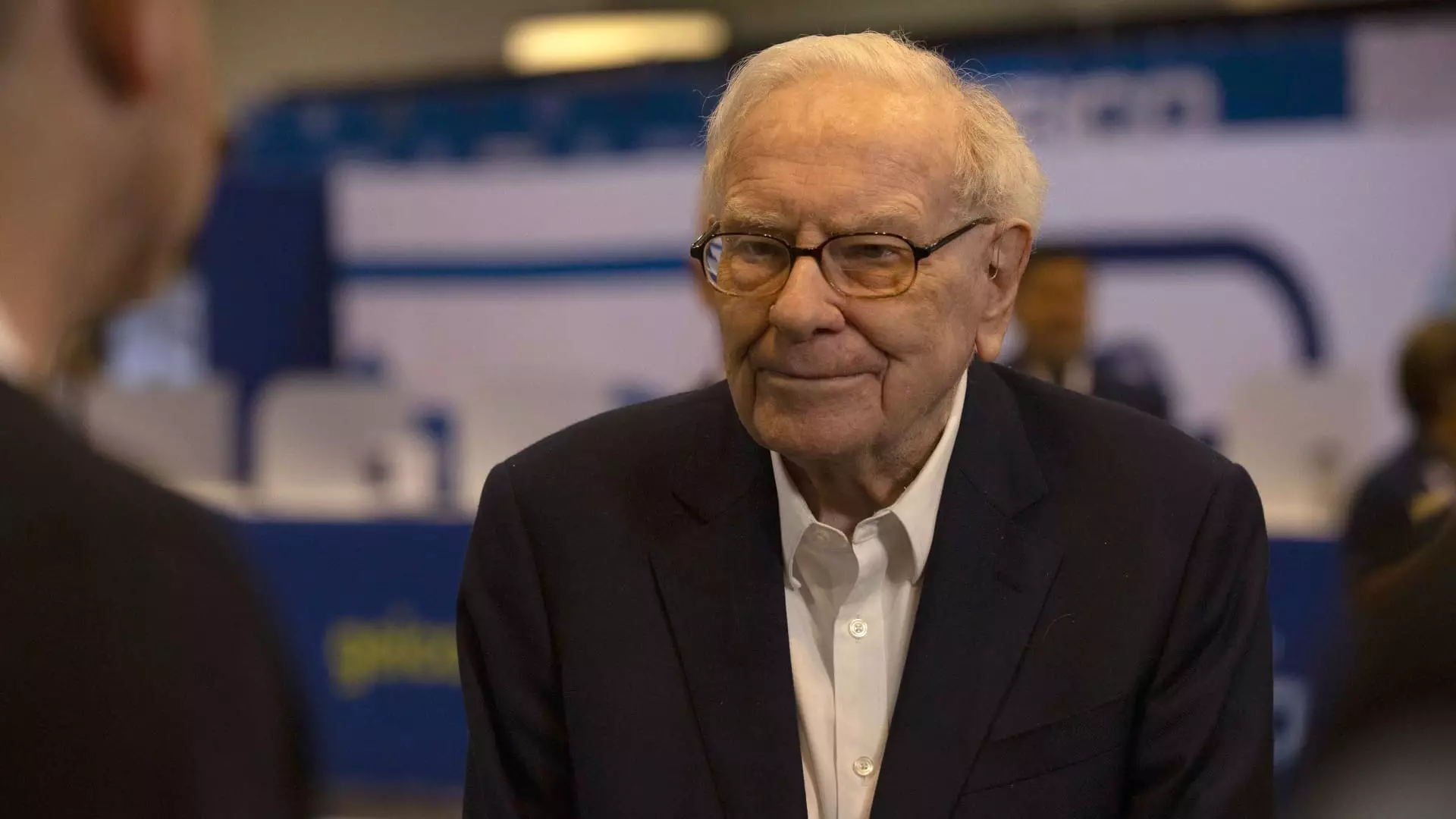Warren Buffett, often dubbed the “Oracle of Omaha,” has made headlines once again with his recent decision to reduce Berkshire Hathaway’s stake in Bank of America (BofA) to below 10%. This noteworthy transaction, which involves the sale of over 9.5 million shares in the span of just three days—spanning from Tuesday to Thursday—might be indicative of a broader strategic maneuver in Buffett’s investment philosophy. By bringing his holdings to approximately 775 million shares, or around 9.987%, Berkshire Hathaway has crossed a pivotal threshold that exempts it from stringent SEC reporting requirements.
This reduction in stake could potentially signal a cautious approach by Buffett regarding the banking sector, particularly in light of the recent financial instability witnessed over the years. The recent selling spree, which followed a string of similar actions across major financial institutions including JPMorgan and Goldman Sachs, underlines a growing wariness towards banking stocks. Having originally bolstered the bank’s confidence with a $5 billion investment back during the tumultuous days of the subprime mortgage crisis, Buffett’s pivot is noteworthy. His initial investment laid the groundwork for BofA to revitalize and restore investor confidence, converting warrants to common stock, and thus becoming the largest shareholder in the bank through the years.
Market Responses and Future Outlook
Despite Berkshire’s liquidation, BofA shares have experienced a minor uptick, rising around 1% in the past month. This resilience can arguably be attributed to BofA’s proactive share repurchasing strategies and the management’s steady leadership under CEO Brian Moynihan. However, the question remains: how sustainable is this rebound in the face of Buffett’s strategic retreat? As a guardian of significant market sentiment, Buffett’s moves carry weight; consequently, the timing and rationale behind his decisions are closely scrutinized by investors and market analysts alike.
Buffett’s cautious tone about the banking sector, especially regarding deposit stability, reflects a broader concern rooted in historical precedents, specifically the bank failures during the 2008 financial crisis and again in 2023. The evolving landscape of digital finance has only intensified these fears, as consumer behaviors and confidence in traditional banking systems are tested. Buffett has articulated this sentiment, cautioning against the ownership of banks in periods of uncertainty that can affect deposit stickiness—a term referring to how likely customers are to retain their funds in a bank.
A Transforming Financial Landscape
The financial sector finds itself amidst a transformative phase shaped by both digital innovation and regulatory challenges. With fintech making banking alternatives widely accessible, market dynamics are shifting towards increased volatility. In this context, Buffett’s movements could serve as a bellwether for broader institutional trends. As shareholders await Berkshire’s next 13F filing, which won’t reveal new holdings until mid-November, the suspense surrounding Buffett’s long-term strategy grows more palpable.
Warren Buffett’s reduction of his stake in Bank of America underscores a strategic pivot amid considerable market changes. As he reassesses the risks involved, the repercussions of this decision will likely resonate throughout the financial sector, portraying a nuanced picture of investment strategy in an evolving landscape.

Leave a Reply